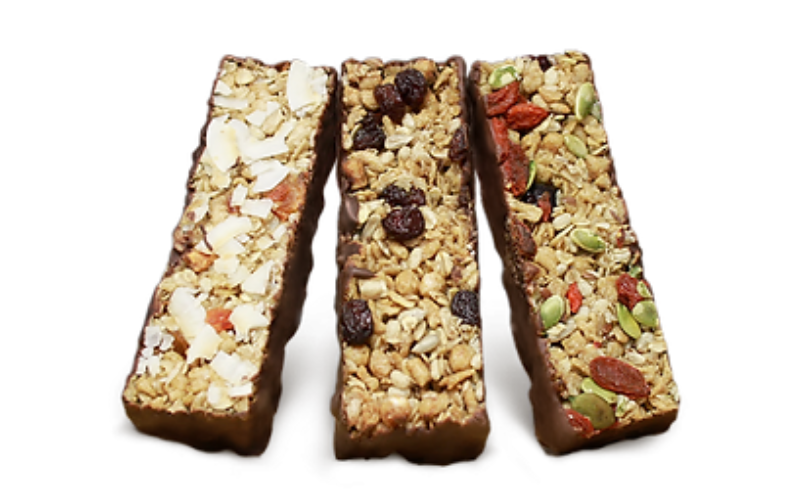Buy your weekday smoothies and get your weekend ones for free. (7 for the price of 5!)

There are literally thousands of snack bars on the market today, with many of them perceived to be healthy based on the number of protein grams they have or the number of carbohydrate grams they don’t have.
Or they claim to be clean label (by what measure?), keto (under the mistaken notion that living in a state of ketosis is health-promoting), paleo (as if all humans followed one particular diet during the Paleolithic era)…
If it’s not fancy protein powders or “natural” nectars, by what measure should one determine the health value of a snack bar?
The Nutrition Panel?
First, another question. Which of the following nutrition labels, found on two different snack bars, is healthier? Please take a close look before continuing.


Ok, which did you pick? Did you choose label A because it has more protein? Or label B because it has more fiber? Label A because it has fewer total carbs? Label B because it has less sodium?
Well, the correct answer to the question, “Which of these bars is healthier?” is, “You can’t tell.”
That's right, you cannot determine the health value of a food just by looking at its nutrition panel.
What is it, then, that determines the health value of a food?

Contrary to popular belief, olive oil is NOT a nutrient-dense food.
(Hint: I hope you picked the second answer to each question.) Assuming you did, what do all those answers have in common?
Whole Plant Foods
They’re whole plant foods. That’s right. It turns out that whole plant foods have the most micronutrients/calorie of all foods.
Just for contrast, what food do you think would have the most macronutrients/calorie? (Macronutrients include protein, carbohydrate, and fat.)
Another way to ask this question is, “What’s the highest calorie food?”
I’ll give you a hint: protein and carbs have 4 calories/gram while fat has a whopping 9 calories/gram. Therefore, oils have the most macronutrients/calorie and are very nutrient-poor foods (yes, even olive oil and coconut oil).
Mind you, nuts are also very high in fat, but they come packaged with all their original micronutrients and fiber, along with the fat, making them (and seeds) the healthiest (most nutrient-rich) fat sources.
Back to nutrient density
With this definition of nutrient density in mind, what should you look at to determine a food’s health value? If not the nutrition panel, then what?
The Ingredients
Following are the ingredients contained in the above bars. As you read them, consider which set of ingredients you think goes with which nutrition panel.
pea protein, organic agave syrup, brown rice protein, organic sugar, tapioca syrup, vegetable glycerine, peanut butter, palm kernel oil, natural flavors, organic agave inulin, cocoa powder, rice starch, chocolate liquor, cocoa powder (processed with alkali), sunflower oil, organic peanut extract, sea salt, sunflower lecithin.
organic dates, black beans and yellow peas, almond butter, cocoa powder, organic unsweetened dark chocolate.

What's keeping these "whole food" bars together???
Now, based on our previous discussion about nutrient density, which ingredient list has the greater health value (the most micronutrients/calorie)?
(Hint: I hope you chose the second set of ingredients—the one with all the whole foods in it.)
Now, with you growing knowledge of nutrition, can you discern which nutrition panel and ingredients list go together? See if you can figure it out before continuing.
A couple of items on the nutrition panels give the answer away. For one thing, panel A reports a significant amount of sodium (more than would be naturally occurring), and only the first ingredients list contains salt.
Also, you may notice that panel B reports no added sugars (which aligns nicely with the second ingredients list), while panel A reports sugars (just doesn’t admit they’re added sugars), and its coinciding ingredients list reports several added sugars (agave, sugar, and tapioca).
So there you have it! Now you are armed with enough knowledge to compare your favorite snack bar with a WellBean to see which comes out on top.
I'd love to hear what you got out of this blog post (if anything), and if you have any questions, please post them below. I love talking nutrition—as all my friends regret. :-)
